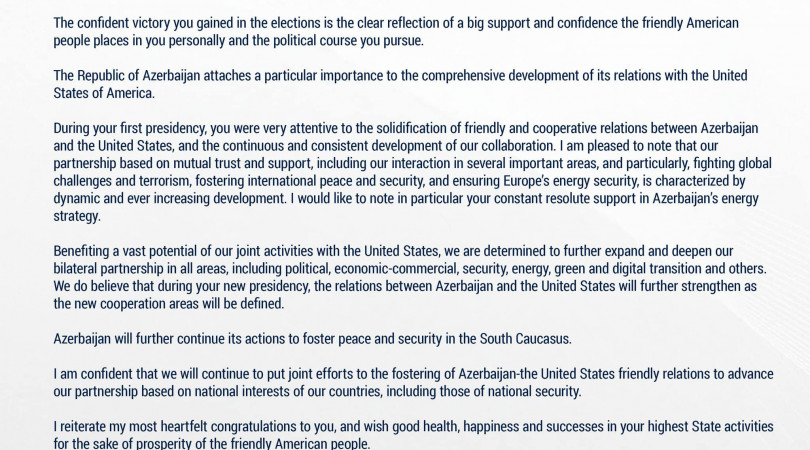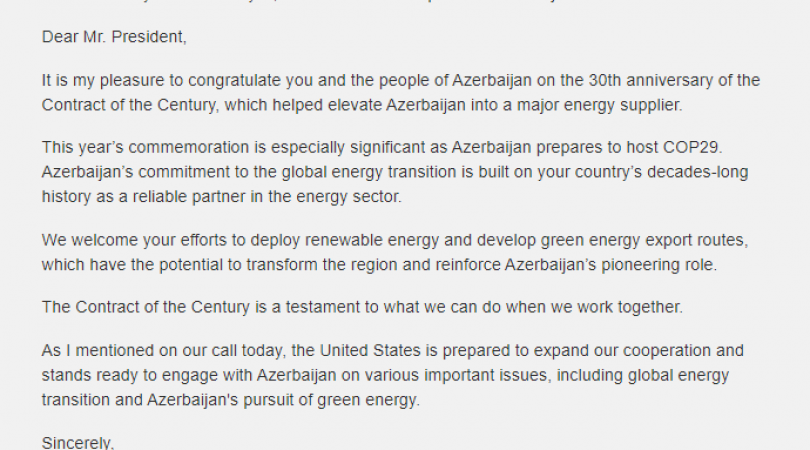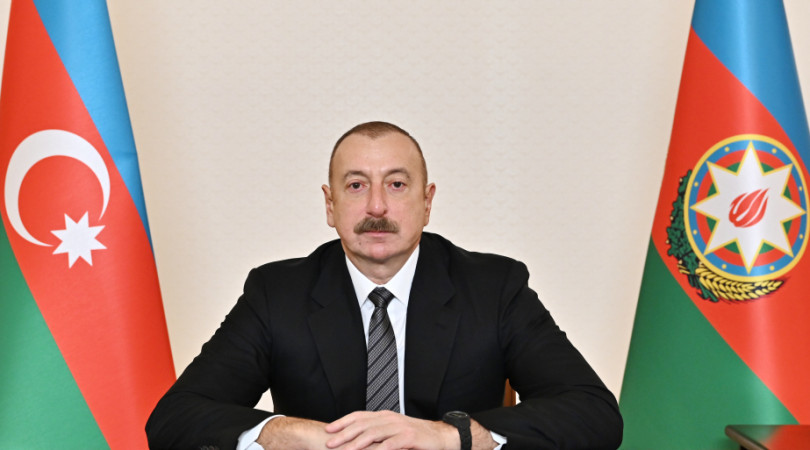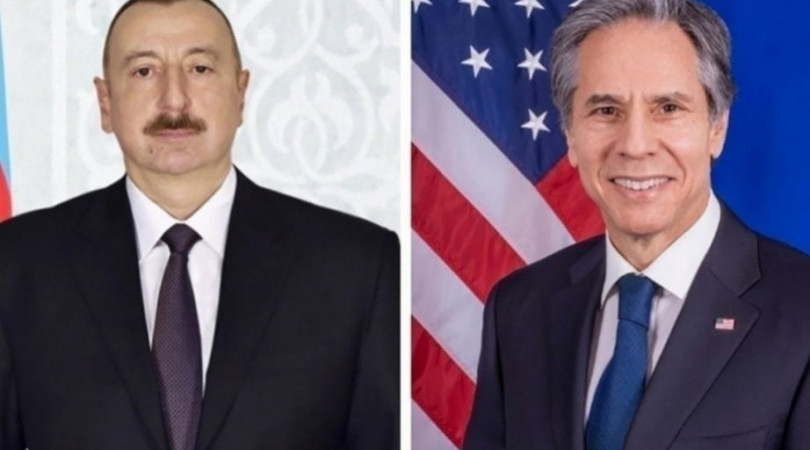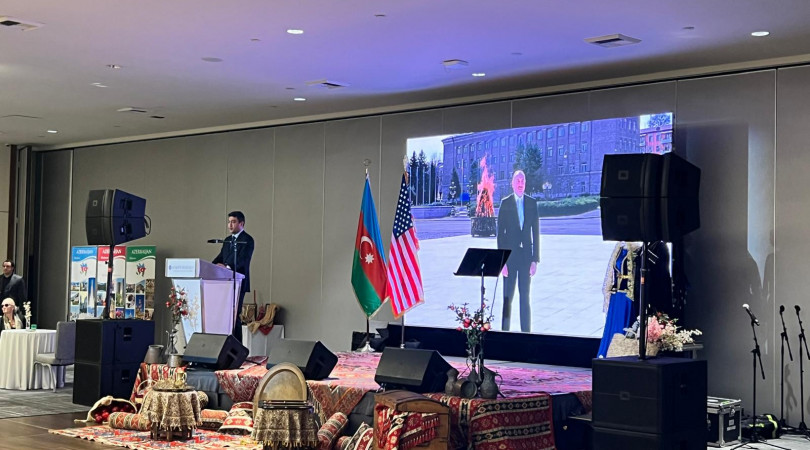A Jewish National Hero of Azerbaijan
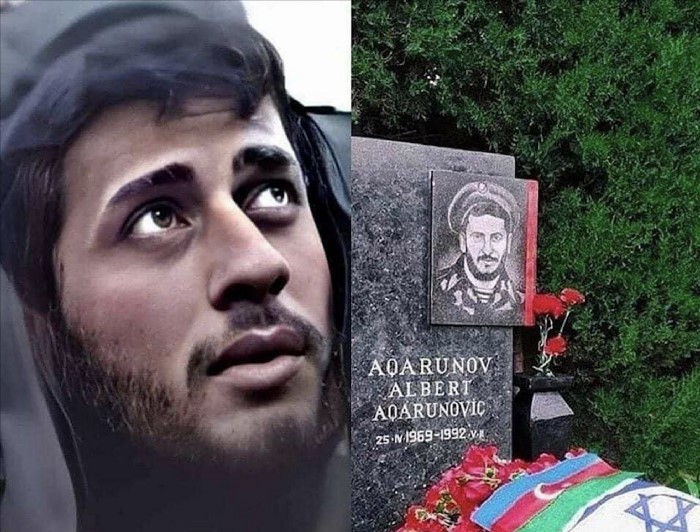 Despite the ceasefire and diplomatic efforts by OSCE to settle the Armenia-Azerbaijan conflict, ending the illegal, UN-condemned occupation of 20% of the Republic of Azerbaijan by Armenia, the only shots fired in anger I ever heard despite eight years in the United States Marine Corps (1959–1967) were 500 yards away from Armenian-occupied Azerbaijan territory while I was standing close to the frontline. They were fired from Russian-supplied artillery launched on the frontline at Azerbaijan forces.
Despite the ceasefire and diplomatic efforts by OSCE to settle the Armenia-Azerbaijan conflict, ending the illegal, UN-condemned occupation of 20% of the Republic of Azerbaijan by Armenia, the only shots fired in anger I ever heard despite eight years in the United States Marine Corps (1959–1967) were 500 yards away from Armenian-occupied Azerbaijan territory while I was standing close to the frontline. They were fired from Russian-supplied artillery launched on the frontline at Azerbaijan forces.
A couple hundred miles away, however, I found a huge new statue of a soldier commanding a tank in the 1992 war between Armenia and Azerbaijan. His name — Albert Agarunov. The statue was unveiled by the Government of Azerbaijan in November 2019 on a beautiful avenue in Baku, Azerbaijan’s capital, named after Agarunov.
23-year-old tank commander Albert Agarunov was killed by an Armenian sniper in the final days of the Battle of Shusha on May 7, 1992, after leading tanks in battle so effectively he was named a National Hero of Azerbaijan posthumously, a hero of a new army that fought against better armed Armenian-Russian forces that had run roughshod since their massacre of hundreds of unarmed men, women and children three months earlier at Khojaly, Azerbaijan.
Tank commander Agarunov’s reputation as a combat leader was enhanced by his clearing, when possible, bodies of dead soldiers so that his tanks didn’t inadvertently desecrate them. He was so skilled that Armenians put a bounty of almost $100,000 on his head.
One huge factor separates Agarunov from other national heroes even of the United States; Azerbaijan is a 95 percent majority-Muslim country sandwiched between Muslim Iran on the south and Russian Muslim territory of Dagestan on the north.
Tank commander Albert Agarunov was Jewish.
National Hero of Azerbaijan Albert Agarunov was trained as a conscript teenager truck driver in the Soviet Army of 1986–7. He was just an ordinary citizen when he answered the call for volunteers to fight the invading Armenia. He was, however, a member of the Jewish community that to this day is a respected part of Azerbaijan’s 10-million population.
There are approximately 30,000 Jews in Azerbaijan today. They are concentrated in the capital Baku and north of it in Quba as well as other cities. Those are called Mountain Jews; they have eight synagogues in Quba, in the Jewish Red Town. The Red Town, often called the Jerusalem of the Caucasus, was founded in 1742 at the initiative of the region’s Azerbaijani Muslim leader, who provided land and protection to Jews. Today the Red Town of Azerbaijan is the largest all-Jewish town outside of Israel and the United States and the last surviving shtetl, meaning Jewish town in Europe.
In Baku there are “two and a half” synagogues. There is a synagogue of Mountain Jews, built and giften to the community by the Azerbaijani government; an Ashkenazi one which also has a separate room for Georgian Jews with roots in the next door Republic of Georgia.
Ashkenazi Jews have German roots; they emigrated to Baku, Azerbaijan, over a century ago to work in what was a leading oil producing region that pioneered the world-wide oil industry. During WWII, Azerbaijan sheltered 10,000 Ashkenazi Jews fleeing the Holocaust in Eastern Europe.
Azerbaijan was a forward looking country during its independence years of 1918–20, in which Jews could work in medicine, business, law, in government and the military. Some of the Ministers of this first independent Republic of Azerbaijan were Jewish. Women in Azerbaijan could vote a year before American women could vote. The free democratic 1918 government was extinguished in 1920 by Communist Armenian and Russian Bolshevik armies. Synagogues were shut down by the Soviet Communists. Jews were not allowed to function during the 70 years of Soviet Communism. That ended in 1991 when Azerbaijan broke away from the Soviet Union.
Today, Isreal buys 40 percent of its oil from staunchly secular, majority-Muslim Azerbaijan. It sells billions of dollars in defense equipment to Azerbaijan. Israeli tourists visit Azerbaijan. The Pope visited Azerbaijan and praised its exemplary model of interfaith harmony and tolerance. The old Silk Road Trade routes through Azerbaijan are now new rails; ships that use a modern port on the Caspian Sea and air space the United States used to reach Afghanistan in its decades-long fight against terrorism — an area where Azerbaijan has developed a strong partnership with the U.S. since September 11, 2001.
A Jewish woman even served as a justice on the Azerbaijani Supreme Court till early this year, when she retired. A Jewish man is a member of Azerbaijan’s Parliament. Jews are represented in all three branches of the Azerbaijani government.
Today, Tank Commander Albert Agarunov, a Jew, is a National Hero in majority-Muslim Azerbaijan. Albert’s story as well as the peaceful life of Jews in Azerbaijan, characterized by unique Muslim-Jewish coexistence, give us all tremendous hope for the possibility of sustainable peace between Jews and Muslims in the Eurasia, Middle East and around rest of the world.
Source: Medium

